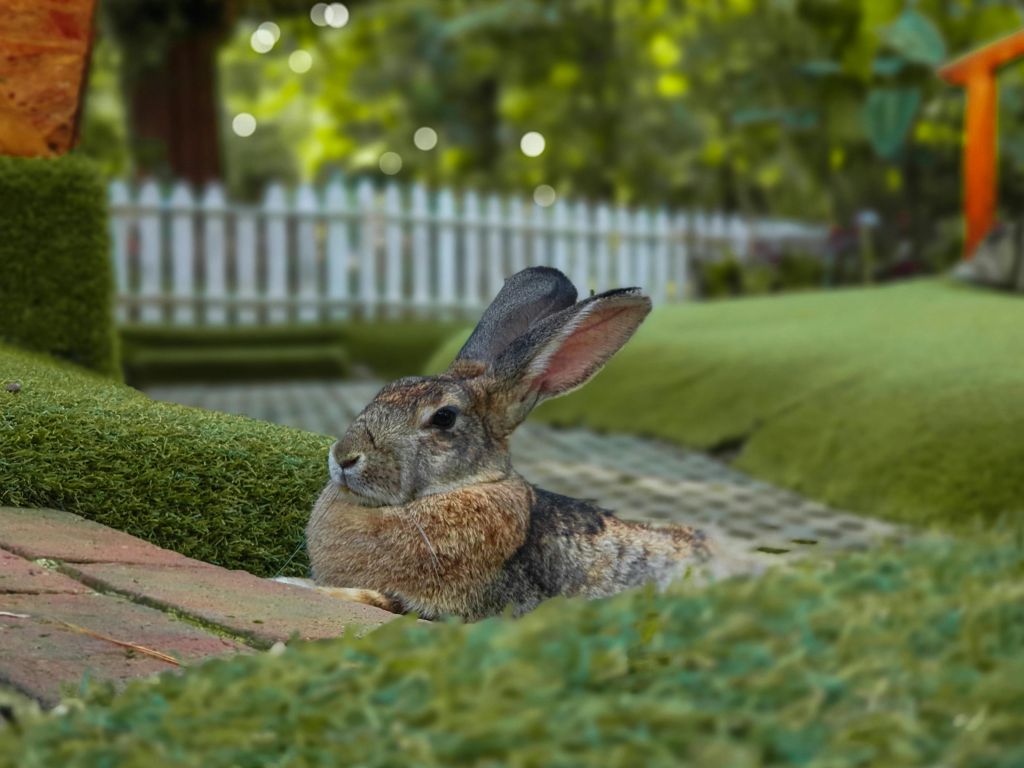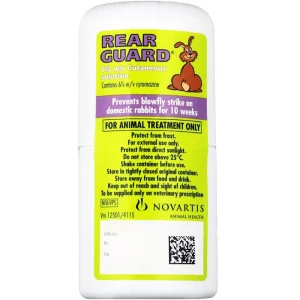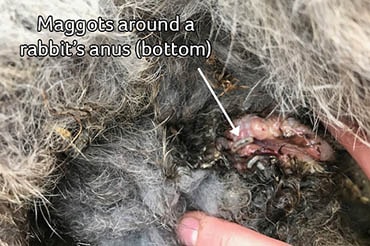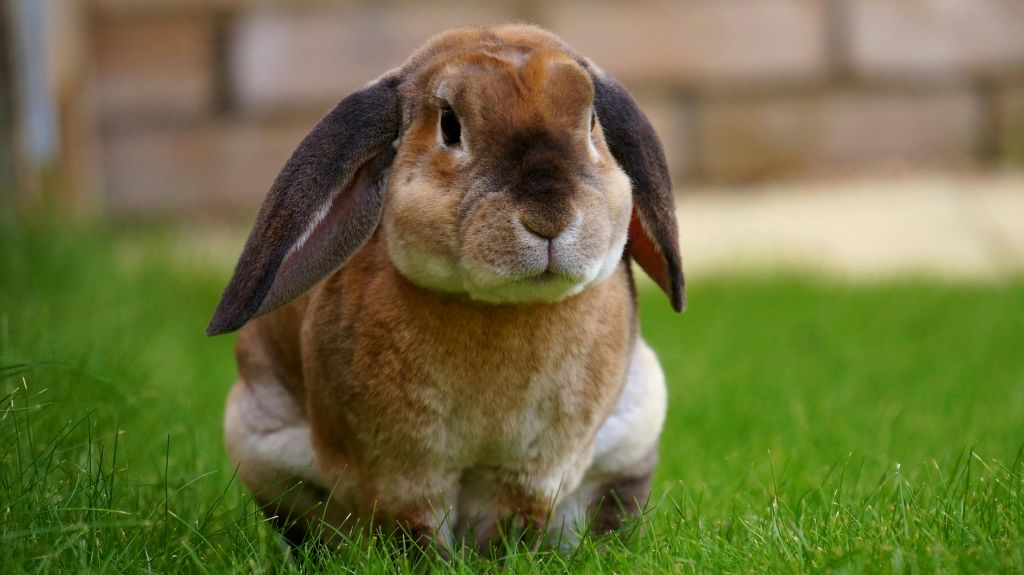Flystrike in rabbits is a life-threatening condition that more commonly occurs in the summer months.
What is Flystrike?
Flystrike is also known as “myiasis” and is a parasitic infection of maggots in the skin. This occurs when flies lay their eggs on your rabbit which go on to hatch out into maggots. These can be from different fly species but those from bluebottles and green bottles are the most concerning. This is because the maggots will eat their way through your rabbits skin within 24 hours of hatching and lead to severe and painful wounds which if left untreated could be fatal.
Which rabbits are more at risk?
Rabbits are more at risk of flystrike in the summer months although it could happen at any time of year. The flies are drawn to soiled or damp areas of fur so those rabbits that often have a dirty bottom or lay in urine are at higher risk. These rabbits may have an insufficient diet, urinary disease or joint problems that allow faeces or urine to accumulate on the skin. Also any wounds that a rabbit may have are at risk of flystrike. Obese rabbits are more likely to struggle cleaning themselves well and so are at a higher risk.
How can we prevent Flystrike?
The first thing is to check your rabbit at least once a day including their bottom and underneath, ideally in summer when the risk is higher you should check more often. Next it is important to keep the rabbits environment clean so that the flies are not attracted. The next line of defence is to use Rearguard or a similar product to deter flies from your rabbit. Once applied this treatment lasts for 10 weeks to prevent flystrike. It is not to be used once the signs of flystrike have been noticed. Obese rabbits should lose weight so that they can keep themselves clean and also reduce strain on their joints and heart. Keep any wounds clean and dry. If your rabbit appears to have a urinary problem, arthritis or unusually wet faeces then a veterinary visit is advised.
How do I know if my rabbit has Flystrike?
There will be maggots in the fur usually around the bottom area or any wounds. They may show other signs such as lack of energy and appetite, digging in corners or have a strong foul smell. As the condition progresses they may become still and limp or collapsed.
What do I do if my rabbit has Flystrike?
It is a medical emergency and they need to be seen by a veterinarian urgently as soon as any signs are spotted. There are no suitable home remedies. If caught early the maggots can be removed and the area clipped, often antibiotics, pain medication and fluids are needed. Once excessive damage has occurred the chances of recovery are minimal and euthanasia may be the kindest option.
For more information regarding flystrike and looking after your rabbit, you can visit the Rabbit Welfare Association website: https://rabbitwelfare.co.uk/flystrike-in-rabbits/





